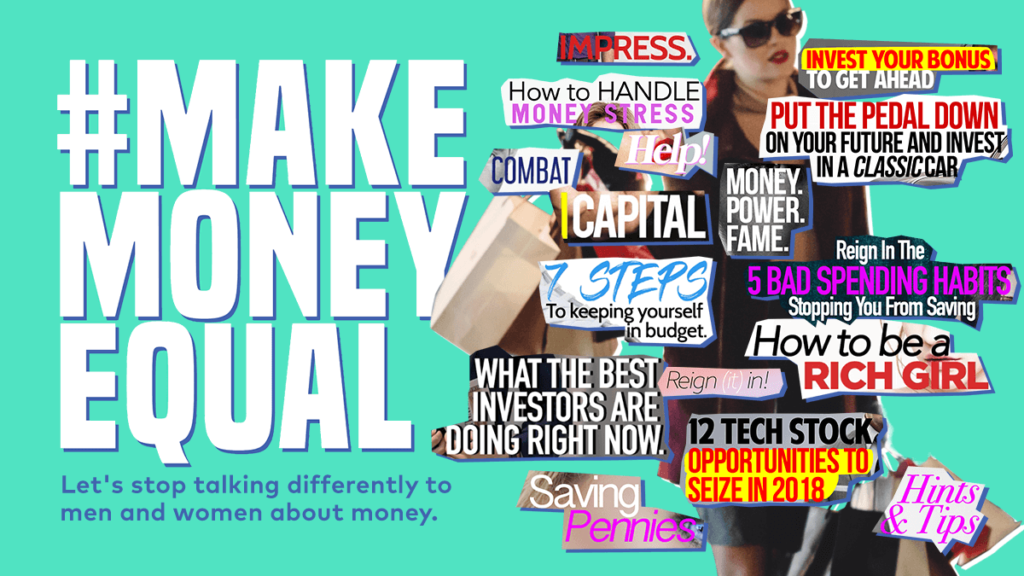PRESS RELEASE
#MAKEMONEYEQUAL campaign urges change to the way we talk to women about money
6th March 2018

New research from Starling Bank reveals 65% of financial articles in women’s magazines define women as ‘splurgers’
The way we speak to women about money differs to the way we speak to men, reveals new research commissioned by Starling Bank as part of their campaign #MAKEMONEYEQUAL.
The linguistic study, completed by The Answer (a research agency specialising in semiotics and cultural value), assessed 300 articles from a mix of outlets aimed at men and women readers and reveals that when it comes to finance, women are considered less productive than men.
Nearly two thirds (65%) of financial articles in women’s magazines define women as excessive spenders advising them to limit, restrict and take better control of shopping ‘splurges’. To combat this, they are encouraged to save small sums, earn small amounts, or to depend on financial support.
Many articles therefore root women’s economic contributions to forms of thrift. Nearly 90% of female targeted articles focus on small ways to save money, often by creating hobby revenue streams or by ‘cutting back’ on outgoings. A further 71% encourage women to specifically seek out vouchers, discounts, bargains and coupons to save money.
Nearly half (47%) of articles aimed at women look at combined income issues, such as shared expenses and reliance on parents or partners, tying women’s economic participation to the domestic sphere and obligations to the family or household. The articles also strongly imply that women are not legitimate earners, suggesting they could contribute more by spending less money made by men, rather than making their own.
Based on the results of the study, Starling Bank has launched #MAKEMONEYEQUAL to change the way we talk to both men and women about money.
Anne Boden, CEO & Founder of Starling Bank, said:
“Money is an issue. Especially if you’re a woman. There are a myriad of factors at play when it comes to being a woman and our finances - but gender inequality doesn’t just start with lower salaries or tokenism in the boardroom. It starts with the way we’re taught and the way we’re spoken to. Language is separating us into spenders and earners, into the frivolous and the empowered. That is why Starling Bank is launching #MAKEMONEYEQUAL - a call to every business owner, news editor, podcast presenter, headline writer and copy checker: Let’s talk about money in the same way to everyone. And let’s start now.”
The ‘thrifty-splurger’ trope in women’s magazines contrasts to the image of the ‘adept financier’ portrayed in magazines aimed at men. In the latter, the economic participation of men is directed towards work, productivity, and autonomy.
Financial articles aimed at male audiences have a less moralistic tone and tend to speak to men as if they’re savvy financiers. 70% emphasise that making money is a masculine ideal. They suggest monetary success and financial literacy are essential to enhancing personal status and getting ahead of colleagues or peers.
Half of the articles aimed at men also use fear propositions to trigger actions such as investing or saving. Articles will rely on masculine stereotyped aspirations, leveraging codes of combat, strength, power, competition and performance. For example, the financial landscape is depicted as easily ‘conquered’ by those ‘daring enough’ to give it a go.
Starling Bank believes that the gender gap starts with the way that both genders are spoken to about money. There are negative implications for both genders, trapping men and women into negative relationships with their finances. Starling Bank therefore calls for all people who believe that money is genderless – that we need parity and equality – then it’s time to join the campaign to #MAKEMONEYEQUAL.